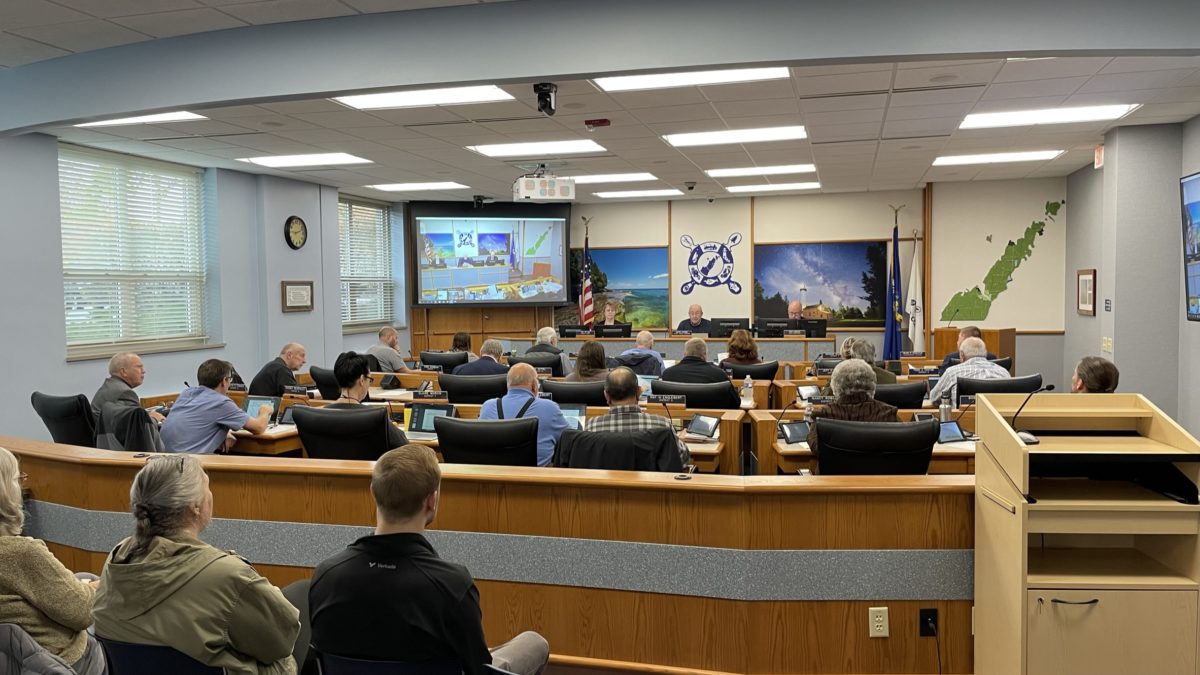The Door County Board of Supervisors on Tuesday approved an ordinance prohibiting bullying and harassment in the county, part of what county leaders described as an effort to get children who are bullying into an existing juvenile diversion program.
The move is an initial step in a broader push to adopt more restorative justice practices in the county’s justice system, said Susan Kohout, the chair of the League of Women Voters of Door County and a former County Board vice-chair. Kohout spoke in favor of the ordinance at the meeting.
Restorative justice is an approach to criminal justice focused on healing the victim and rehabilitating the perpetrator – in some cases through face-to-face conversations between the two – rather than only punishment.
It has been championed in Wisconsin by Janine Geske, a retired state Supreme Court justice and current Marquette University Law School professor. Geske spoke at a Women’s Fund of Door County event in August.
The bullying and harassment ordinance was requested by both the Sheriff’s Office and the District Attorney’s office, county corporation counsel Sean Donohue told county supervisors. The county had a harassment ordinance but did not previously have a bullying ordinance, Donohue said.
Enacting an ordinance gives the county a legal mechanism to get children who are bullying into the juvenile diversion program, he said, by presenting the diversion program as an alternative to fines.
“The reason behind this request is not to assess forfeitures through the ordinance to minors, but to bring minors who are bullying into a juvenile diversion process,” Donohue said.
The juvenile diversion program will allow the county to implement restorative justice practices with children who bully, Donohue said.
“It’s more of a teaching opportunity to teach the bully, ‘How is your conduct affecting victims?’” Donohue told supervisors. “It’s an opportunity for the victim to express, ‘How does bullying make you feel?’”
The ordinance allows the county to fine someone $50 for a first offense and $100 for a second or subsequent offense. Including assessments, fees and costs, those amounts go up to $200.50 and $263.50, respectively.
A shift toward restorative justice
Kohout said the League of Women Voters’ support for restorative justice efforts arose out of a study it completed in 2020 on Door County’s response to mental health and substance use issues.
The League has been doing advocacy on those issues, she said, including an education committee informing the public and a legislative committee monitoring local and state government efforts.
Geske’s appearance at the Women’s Fund event and an accompanying panel discussion sparked an existing interest in restorative justice among League members, Kohout said.
The panel was moderated by Jennifer Moeller, the Door County family court commissioner and register in probate, and Kohout asked her to attend the League education committee’s meeting in late September to brainstorm possible restorative justice efforts.
Kohout said she was on vacation when she received an email from Sheriff Tammy Sternard – who had received notice of the meeting – saying she would be attending. She then got another email from Moeller asking if it was OK to bring a few other people who would be interested.
“We all had to pick up our chins from the table. They are now coming to our meeting because they want to talk about restorative justice.
Susan Kohout, Chair, League of Women Voters of Door County
League members were shocked at who those interested people were: Donohue, District Attorney Colleen Nordin and Circuit Court Judge David Weber, among others.
“We all had to pick up our chins from the table,” Kohout said. “They are now coming to our meeting because they want to talk about restorative justice. We sat there for an hour and a half and we watched them brainstorm.”
The group discussed “low-hanging fruit” efforts that could build on what the county already is doing, Kohout said.
“It was breathtaking to watch the people who are in the power to make these changes sitting there discussing it,” she said.
At a meeting last week of the county’s Criminal Justice Collaborating Council, Kohout said, it became clear that the bullying and harassment ordinance (which had by then been introduced by Donohue and approved by the County Board’s judiciary and public safety committee) arose out of the League’s efforts and the justice system officials’ interest.
Kohout said she hopes this step leads to more restorative justice initiatives in the county.
“Once things get started, they can snowball a little bit,” she said. “Maybe you can do some of these techniques at the schools and prevent kids from going to the diversion program.”
Questions about broadly written ordinance
County Supervisor Rodney Beardsley, who represents parts of the City of Sturgeon Bay, expressed concern at the County Board meeting that the bullying part of the ordinance is vaguely defined.
Donohue said the bullying part of the ordinance was intentionally broadly written to make sure it encompasses all possible cases of bullying.
“Everybody knows bullying when they see it,” Donohue said. “By creating a broad definition of bullying, we can allow our district attorney, law enforcement and judges to (decide).”
The ordinance defines bullying as “deliberate or intentional behavior (e.g., words or actions), intended to cause fear, intimidation, or harm.” It then gives several examples.
Beardsley asked whether behavior similar to the examples would also have to match the ordinance’s definition of bullying in order to be considered a violation.
Donohue said the bullying definition is the legally binding part of the ordinance, and it could also apply to behavior beyond the examples given.
The ordinance passed with 19 yes votes. Beardsley abstained. Supervisor Vinni Chomeau, who represents the Town of Gibraltar and part of the Village of Ephraim, was absent.
“Everybody knows bullying when they see it. By creating a broad definition of bullying, we can allow our district attorney, law enforcement and judges to (decide).”
Sean Donohue, Door County Corporation Counsel
Donohue said having a bullying ordinance is not original to Door County. In an email this week, he pointed to bullying ordinances in Wisconsin cities including Monona, Shawano, Wisconsin Rapids and Oconto Falls.
Those ordinances all use the same definition of bullying, which is phrased differently than the one in Door County’s ordinance. They define bullying as “a form of harassment and is defined as an intentional course of conduct which is reasonably likely to intimidate, emotionally abuse, slander or threaten another person and which serves no legitimate purpose.”
After the meeting, Donohue said he was not concerned about the ordinance being misapplied beyond the county’s current intentions.
“I don’t have a concern because there are so many checks through our legal system,” he said, including the discretion of Sheriff’s Office deputies, the district attorney and judges. “There are enough checks where I think it’s a workable ordinance.”
Read the ordinance
Click here to read the Door County ordinance on bullying and harassment.
Click here to read the bullying-related ordinances of four other Wisconsin cities.

